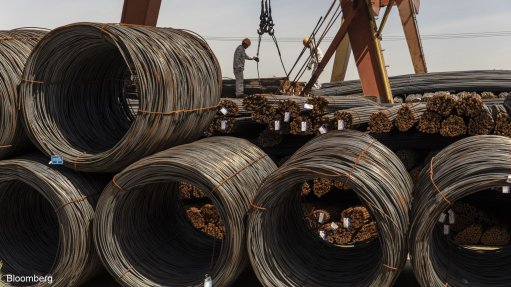FinTech and financial inclusion for the unbanked and underbanked in Africa
This article has been supplied.
By Dr Mthandazo Ngwenya, Managing Director: Development Advisory and Impact at leading infrastructure development group, Bigen
The South African Reserve Bank (SARB), in August 2017, established a unit within the bank called the SARB FinTech Unit. This unit was created because ‘advances are rapidly being made in financial technology (fintech) and related novel financial services platforms’. Fintechs have innovated how financial products and services are exchanged in areas that include cryptocurrency, digital payment platforms, insurance products and remittances. Some countries are utilising digital currencies as legal tender.
The benefits of innovation brought about by fintech include:
- Personalised and user-friendly access to financial services
- Increased access to pools of credit solutions
- Lower transactional costs
- Digitalised wealth management solutions
- Democratisation of financial information
Mobile banking technologies that rely on advances in financial technologies have, in recent years, seen a rapid increase in customers. The service has proved convenient and accessible and has contributed towards the reduction of the unbanked and the underbanked, who, on many occasions, are those at the bottom of the economic pyramid - Africa’s poor citizens. By improving access to fintech services, the poor can access products and services previously beyond their reach.
According to an August 2022 report by McKinsey & Company, titled Fintech in Africa: The End of The Beginning, 10% of financial transactions in Africa are digital. Fintech in Africa raised revenues of US$6 billion in 2020, charged up to 80% lower transaction costs and generated savings returns that are three times higher than other financial services providers. The fintech market is expected to grow rapidly at about 10% per annum over the next decade.
A success story is M Pesa, a fintech mobile banking product that began in Kenya in 2007. Operated by Vodaphone’s subsidiary Safaricom, it is Africa’s leading mobile banking service, with 51 million customers and more than 465 000 business clients in seven countries in 2022. M Pesa has an agent network of 600 000 and manages about 61 million dialy transactions on its platform. A real game-changer for financial inclusion. The explosion of mobile money seen in other countries has not taken off in South Africa, where the main banks still have a stranglehold and e-wallet services are the main alternatives. The lack of interoperability and high transaction costs of e-wallet services among banks remains a challenge, potentially limiting financial inclusion.
It has not been all good news for the fintech sector. It has been hit by various scandals involving cryptocurrencies and other products, with the firm FTX being the latest culprit. Investors lost billions when FTX declared bankruptcy in November last year, and investigations have revealed serious financial misconduct by some key executives at the firm. Such scandals erode public trust and threaten to undo the good work being done by fintech.
South Africa took early steps to manage potential risks that could emanate from fintech. The Intergovernmental Fintech Working Group (IGFWG) was established in 2016 to allow regulators to gain greater insights and share information. Some notable members include the Financial Intelligence Centre, SARB, the Financial Sector Conduct Authority, National Treasury, the National Credit Regulator, the South African Revenue Service, and the Competition Commission.
While Fintechs have a considerable role to play in financial inclusion, it does not mean they have a lower duty of care to their clients, among them vulnerable members of our societies.
Article Enquiry
Email Article
Save Article
Feedback
To advertise email advertising@creamermedia.co.za or click here
Press Office
Announcements
What's On
Subscribe to improve your user experience...
Option 1 (equivalent of R125 a month):
Receive a weekly copy of Creamer Media's Engineering News & Mining Weekly magazine
(print copy for those in South Africa and e-magazine for those outside of South Africa)
Receive daily email newsletters
Access to full search results
Access archive of magazine back copies
Access to Projects in Progress
Access to ONE Research Report of your choice in PDF format
Option 2 (equivalent of R375 a month):
All benefits from Option 1
PLUS
Access to Creamer Media's Research Channel Africa for ALL Research Reports, in PDF format, on various industrial and mining sectors
including Electricity; Water; Energy Transition; Hydrogen; Roads, Rail and Ports; Coal; Gold; Platinum; Battery Metals; etc.
Already a subscriber?
Forgotten your password?
Receive weekly copy of Creamer Media's Engineering News & Mining Weekly magazine (print copy for those in South Africa and e-magazine for those outside of South Africa)
➕
Recieve daily email newsletters
➕
Access to full search results
➕
Access archive of magazine back copies
➕
Access to Projects in Progress
➕
Access to ONE Research Report of your choice in PDF format
RESEARCH CHANNEL AFRICA
R4500 (equivalent of R375 a month)
SUBSCRIBEAll benefits from Option 1
➕
Access to Creamer Media's Research Channel Africa for ALL Research Reports on various industrial and mining sectors, in PDF format, including on:
Electricity
➕
Water
➕
Energy Transition
➕
Hydrogen
➕
Roads, Rail and Ports
➕
Coal
➕
Gold
➕
Platinum
➕
Battery Metals
➕
etc.
Receive all benefits from Option 1 or Option 2 delivered to numerous people at your company
➕
Multiple User names and Passwords for simultaneous log-ins
➕
Intranet integration access to all in your organisation





















